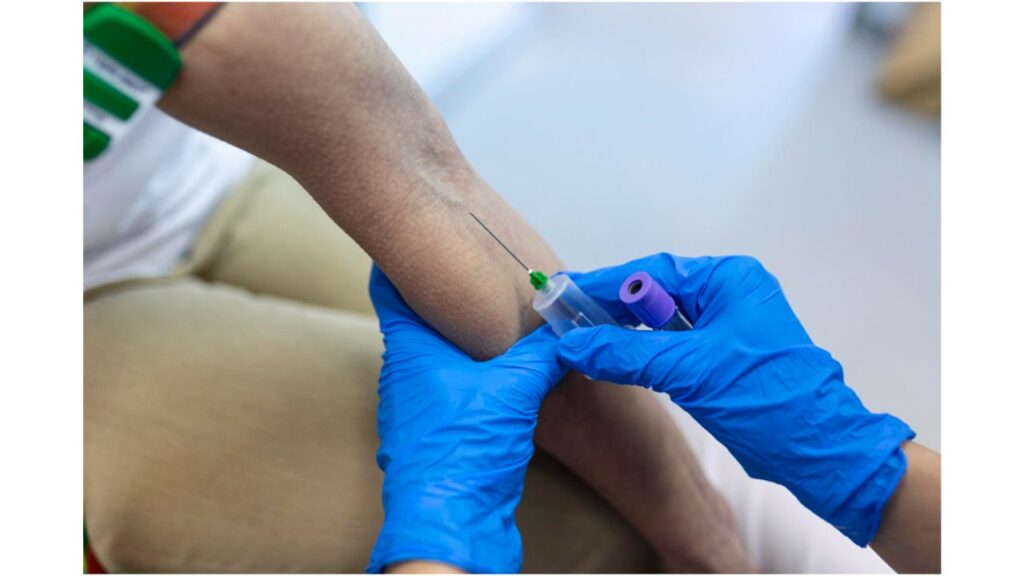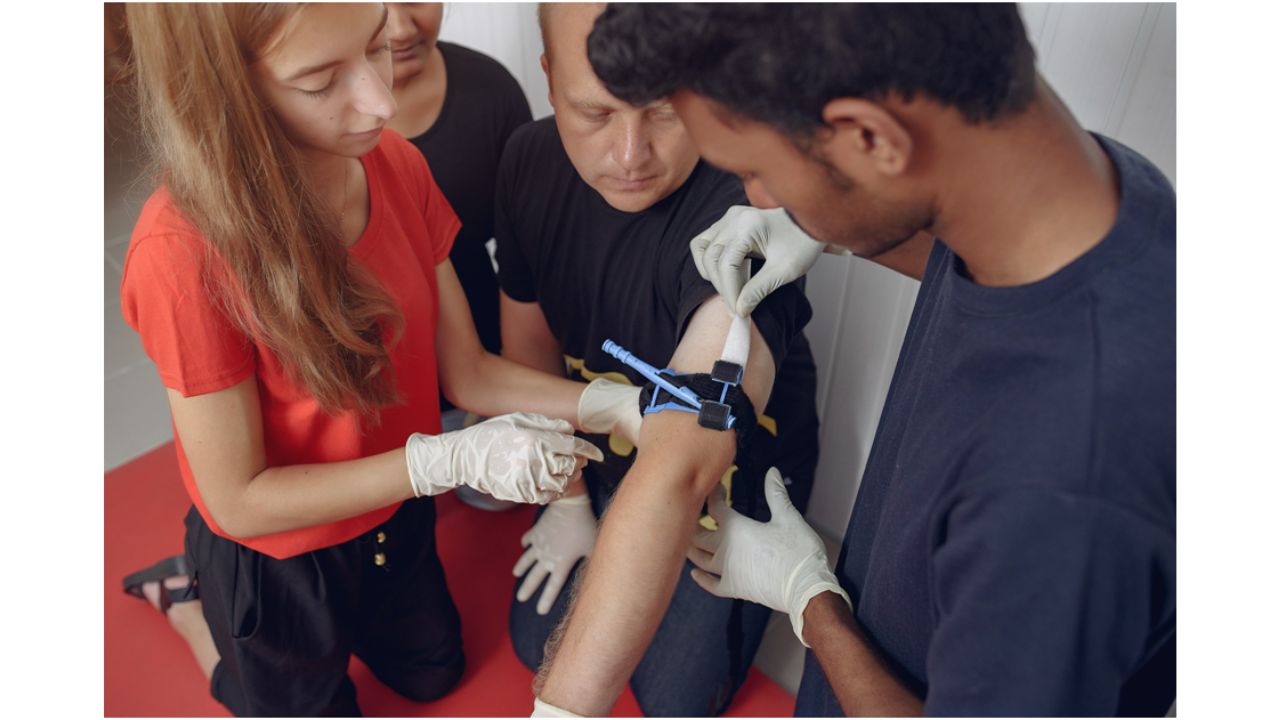Almost all the phlebotomy aspirants have the question, Online vs Practical Phlebotomy Training: Which One Is Better? The answer is both.
The online classes provide the foundational and bookish knowledge. On the other hand, the in-person phlebotomy training provides both theory and practical knowledge. But there are so many things to consider while choosing the best phlebotomy classes in the UK.
In this blog, we will share the difference between online and face-to-face phlebotomy training. So, you can simply read it and choose the best one for you. Let’s dive in!
What Skills Do You Need to Draw Blood?
A phlebotomist, also known as a blood draw specialist, must have some specific skills. The skills allow you to do the job properly and effectively. However, if you want to become a phlebotomist, you will need both technical and interpersonal skills.
Here are the skills you will need to become a professional phlebotomist:
- Technical skills: To become a phlebotomist, the first thing you need is technical skills. It includes venipuncture, specimen handling, patient care and equipment maintenance. Also, they choose the veins and sites to draw blood.
- Soft Skills: After the technical skills, phlebotomists also need soft or interpersonal skills. It includes communication skills, empathy, patience and attention to detail. The soft skills allow your patient to feel comfortable and boost your confidence.
Online Vs. In-Person Phlebotomy Training: What Should You Get
Now that you know what skills you need, you can look for the qualifications. To become a certified phlebotomist, you need to complete an accredited phlebotomy course.

But there are some online and some face-to-face phlebotomy courses. So, online vs practical phlebotomy training, which one should you do?
There are several major differences between face-to-face and online phlebotomy courses. If you want to learn and gain practical experience, you should opt for practical phlebotomy training.
On the other hand, if you want to learn with more flexibility, then online courses are the best.
Now, let’s take a look at the key differences between the online and in-person phlebotomy classes:
| Online Phlebotomy Training | In-Person Phlebotomy Training | |
| Focus | Online phlebotomy classes focus on theoretical lessons. | Face-to-face phlebotomy training focuses on both. Yet it gives high priority to the practical experience. |
| Who needs this | It is especially for busy learners who seek better flexibility. | If you want to get the practical experience and start your career early, then it is best for you! |
| Accessbility | You can join the online blood draw courses from anywhere. It allows you to learn phlebotomy from home. | You can join the classroom-based phlebotomy training in London, Swindon, Birmingham or other cities in the UK. |
| Practical experience | In the online training, there a very limited or often no options for hands-on practice. | Face-to-face phlebotomy courses strongly focus on hands-on training and practical experience. |
| Certification | If you have enrolled in any accredited course, it is valid to many employers. Yet, some employers may ask for a practical experience certificate, too. | On the other hand, if you have completed the in-person phlebotomy training program, your certificate will be widely recognised and valid for any employer. |
| Affordability | Online blood draw courses are much more affordable and easier to access. | However, the in-house phlebotomy training costs more than the online ones. |
What You Need To Consider While Choosing Phlebotomy Training
While choosing the best phlebotomy training for you, there are some key factors you need to look at. It helps you to choose the right courses that align with your career goals and prospects. Here are the things you must consider:
- Accreditation: While choosing the best phlebotomy courses in the UK, you must look for accreditation. The course must be CPD or other recognised awarding body accredited.
- Credibility: Another important fact is the credibility of the provider. Your course provider must have a good reputation and must be credible. Like Lead Academy, which is a credible and reputable course provider in the UK.
- Curriculum: Then you should also go through the curriculum. The course you are choosing must equip you with both technical and soft skills we mentioned earlier.
- Job placement: For this category, it is quite flexible. Yet if your course helps you with the tips for job placement, that would be amazing.
FAQs

● What is the best way to learn phlebotomy?
In-house or face-to-face training is the best way to learn phlebotomy professionally. The courses provide both theoretical and practical blood taking training. However, you can join an online course as well. With that, you can make your bookish knowledge about blood draw techniques stronger.
● How to become a fully qualified phlebotomist?
To become a fully qualified phlebotomist in the UK, you need to complete an accredited course. The courses will teach you the basic skills with practical experience. Hence, after completing the course, you can get the certificate and an entry-level phlebotomist job as well. Following that, you can join any advanced phlebotomy training to become a fully qualified phlebotomist in the UK.
● Can phlebotomists work internationally?
Yes, a phlebotomist can work internationally. Since the career of a phlebotomist offers enormous flexibility, you can work anywhere in the world. There is always a high demand for phlebotomists in the traveling zones and urban areas.
Final Words
So, after the brief discussion of Online vs Practical Phlebotomy Training, we can say that it totally depends on your choice. While choosing the course, you need to consider your career goals and learning style. Both online and face-to-face phlebotomy courses offer basic to advanced blood draw training. Yet, the online phlebotomy courses offer better flexibility. On the other hand, in-person courses provide practical blood-taking techniques. So, if you want a strong base and quick entry into the career, you can choose the practical phlebotomy classes.
Also Read: EO PIS Understanding Its Multiple Meanings and Applications Across Different Industries

